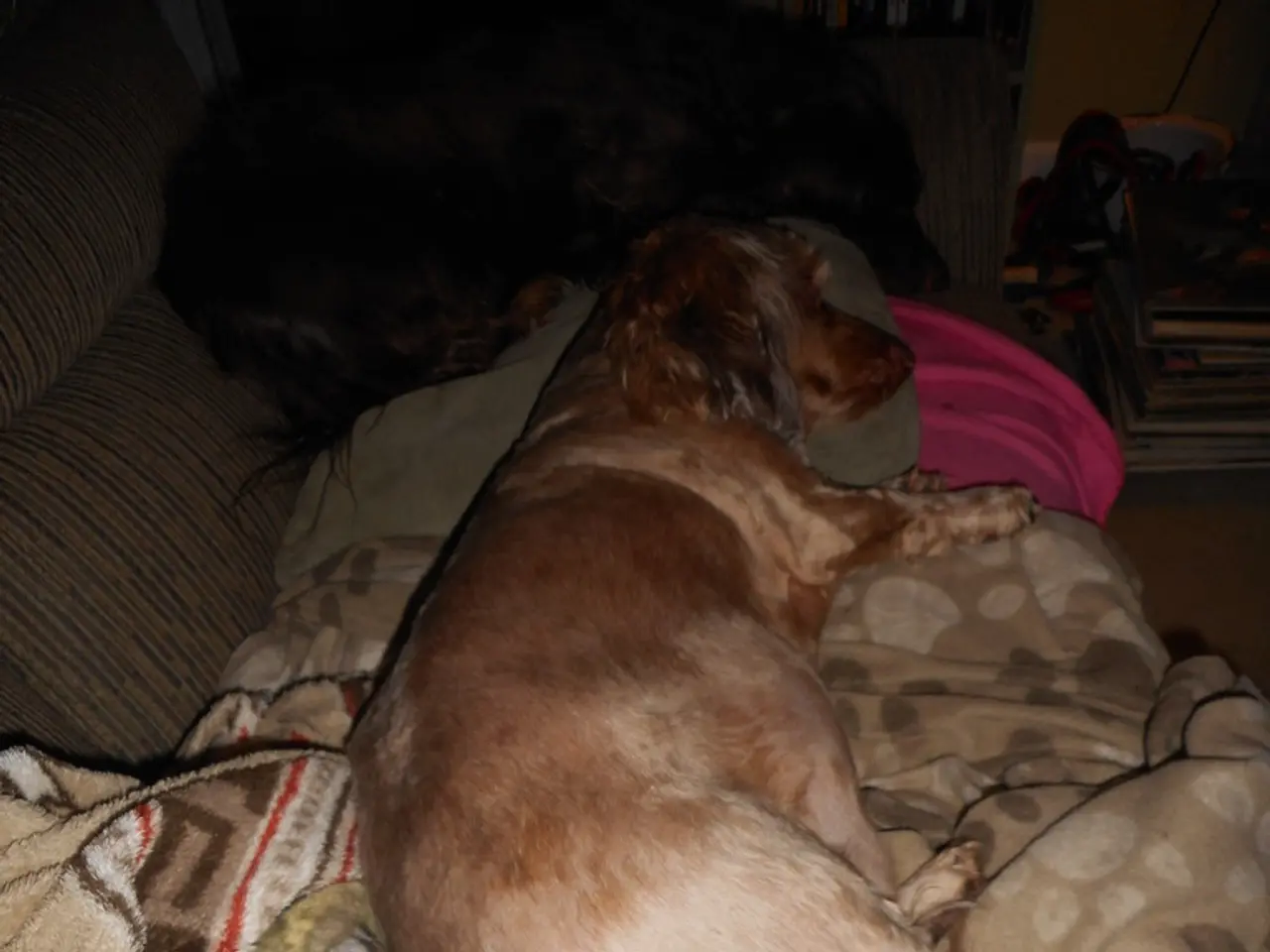Why Do Dogs Spend Most of Their Time in Slumber?
Dogs' Sleeping Habits: Factors, Normalcy, and Health Concerns
Dogs, much like humans, sleep to recharge and restore their bodies. A study published in the Journal of Veterinary Behavior has found that dogs in a barren research facility slept more than those with environmental enrichment, highlighting the impact of environmental factors on a dog's sleeping habits [3].
Dogs sleep for various reasons, including conserving and replenishing energy, supporting growth and development (in puppies), and recovering from physical and mental activity [1]. However, their sleep needs can significantly vary based on age, size, breed, and activity levels.
Sleep Duration by Age, Size, and Breed:
- Puppies: 18-20 hours
- Adult Dogs: 12-14 hours
- Senior Dogs: 16-18 hours
- Large Breeds: 16-18 hours
- Small Breeds: 12-14 hours
- High-Energy Breeds: 10-12 hours
- Working Dogs: 12-16 hours
- Inactive Dogs: 14-16 hours
Dogs have more polyphasic sleep patterns, with less deep REM sleep than humans, contributing to their need for more total hours of sleep to recharge their brains effectively [3][5]. Inactivity or boredom can also cause dogs to nap more, and health issues like hypothyroidism can increase sleep needs [1][5].
Some breeds are known for being especially sleepy, like Basset Hounds, which can sleep 12-16 hours or more, especially as they age [4]. However, if a dog is sleeping excessively and has a clean bill of health, it may be due to boredom [3].
Abnormal Sleep Habits and Health Concerns:
Any noticeable change in a dog's routine or behavior warrants a discussion with a veterinarian to rule out underlying medical causes [4]. Abnormal sleep habits in dogs can indicate deeper health issues, such as sleep-disordered breathing, causing loud snoring and daytime drowsiness, especially in short-nosed and toy dog breeds [4].
Dogs with REM Sleep Behavior Disorder may twitch in their sleep and then pop up and start running, barking, or attacking [4]. A puppy falling asleep mid-play or mealtime could indicate canine narcolepsy [4]. A dog sleeping all day could be suffering from depression, diabetes, thyroid issues, or hearing loss [4].
If you suspect your dog's sleep health is abnormal, experts recommend getting your pup checked out as soon as possible [4]. It's crucial to ensure your furry friend is getting the rest they need to live a happy and healthy life.
- Dogs' need for environmental enrichment can impact their sleeping habits, as demonstrated by a study in the Journal of Veterinary Behavior that reported dogs in barren facilities slept more than those with enrichment.
- Mental health concerns, such as depression, can be indicated by abnormal sleep habits in dogs, like sleeping all day, and it's essential to consult a veterinarian to rule out underlying health issues.




